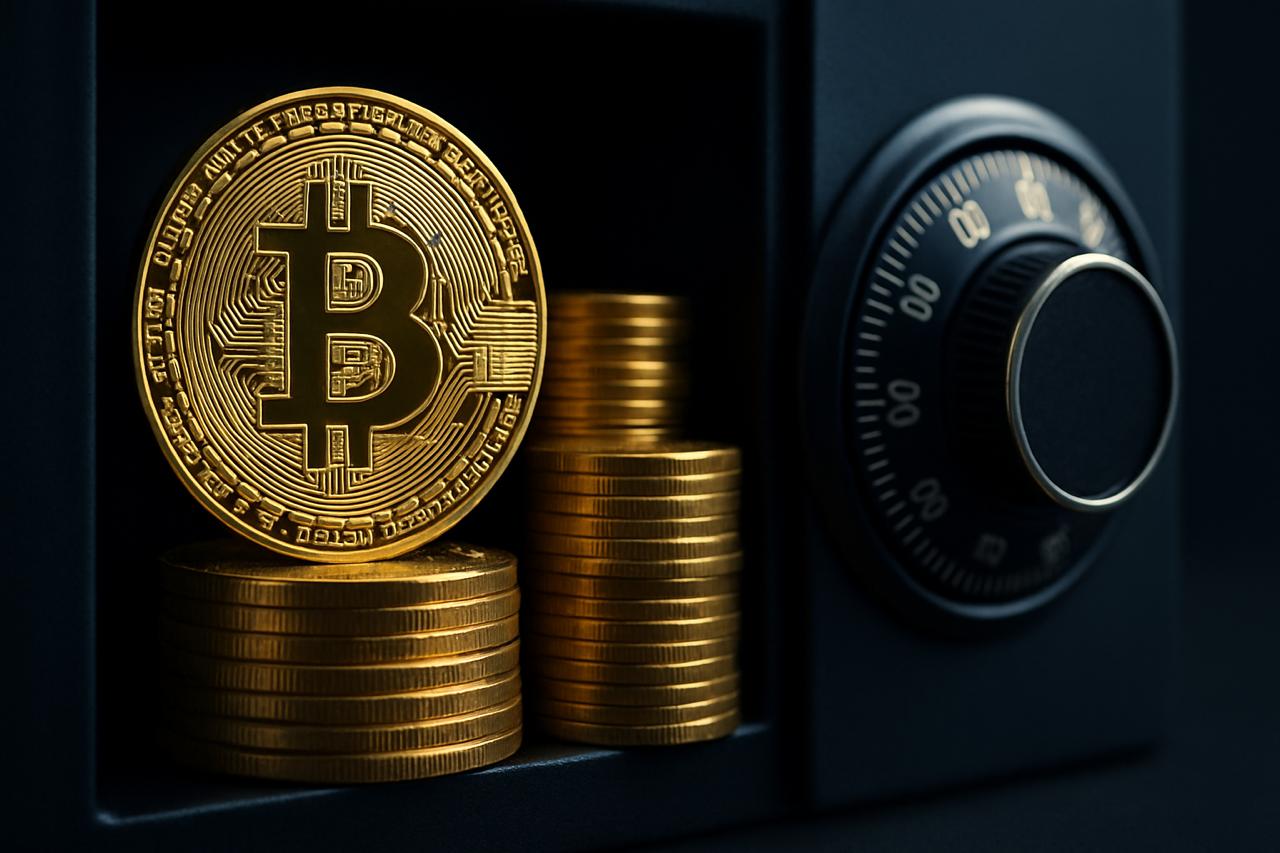Alright, so you’ve decided to dive into the wild, wonderful world of cryptocurrency. Brilliant! Now, the real question: where do you keep your shiny digital assets? Spoiler alert: it’s not as simple as tossing your coins into a piggy bank. (Hmmm, maybe you could try that? Just kidding. Please don’t.)
Self-Custody: Your Keys, Your Castle (And Your Stress Level) 🔐🧙♀️
Self-custody means holding your Bitcoin like a responsible adult, locking it away in a wallet where only you have the magical private keys. Whether it’s a hardware wallet (like Ledger or Trezor—think of them as the Fort Knox of crypto), a software wallet, or even a paper one (yes, paper, because who doesn’t love some vintage storage?), it’s all about control. No bank can freeze your funds, no platform can put you on hold—fabulous, right?.
But beware! With great power comes… well, lots of responsibility. Lose your keys, forget your seed phrase, or accidentally damage your device, and poof—your crypto goes into the ether. It’s like trusting yourself with a pet dragon—delightful until it burns down your house. For the long-haul HODLers, privacy junkies, and conspiracy theorists, this is the way to go, preferably with strong security practices. Because phishing scammers don’t take holidays. 🦹♂️

Crypto Custodial Wallets: Let Someone Else Handle the Drama 💼🤯
On the other hand, custodial wallets are like handing over your keys to that slightly shady but suspiciously helpful stranger—think Coinbase, Binance, or Kraken. They hold your private keys while you sip margaritas, confident that your funds are safe (or at least that’s the pitch). Ideal for beginners, busy traders, or anyone who hates feeling responsible for basically everything. The offer? Convenience, insurance, and the luxury of not waking up in a cold sweat every time the power flickers.
But here’s the catch—trust is everything. You’re putting your faith in these giants. Remember FTX? Yeah, they had “trust issues.” Hackers and regulators are lurking, ready to pounce, and sometimes, your funds get frozen like an overzealous ice lolly. Nevertheless, some big players prefer this route thanks to rules, regulations, and insurance stuff—grown-up stuff that sounds boring but is crucial.

Striking the Perfect Balance: It’s Like a Crypto Tinder Date 💑🤪
Honestly, there’s no one-size-fits-all silver bullet. Most seasoned crypto enthusiasts swear by a bit of both. Keep the long-term stash safe and sound in a hardware wallet—like storing the Crown Jewels in your secret vault—and keep the more active funds on exchanges that won’t let your money go on a permanent vacation. It’s a little bit Robin Hood, a little bit Batman.
If you cherish your independence and trust yourself with the keys, go self-custody. But be prepared to become a security ninja. Prefer the convenience? Use a custodian—but remember, you’re giving up a smidge of control, and sometimes that’s a lot. 🎩
In the end, cryptocurrency ownership isn’t just about having a digital treasure chest; it’s about owning the responsibility that comes with it. Know your options, weigh your risks, and choose your storage method like the savvy, sarcastic crypto connoisseur you are.
Read More
- Silver Rate Forecast
- SPEC PREDICTION. SPEC cryptocurrency
- ETHFI PREDICTION. ETHFI cryptocurrency
- USD PHP PREDICTION
- INR RUB PREDICTION
- OM PREDICTION. OM cryptocurrency
- RUNE PREDICTION. RUNE cryptocurrency
- ADA GBP PREDICTION. ADA cryptocurrency
- GBP CNY PREDICTION
- MNDE PREDICTION. MNDE cryptocurrency
2025-06-02 03:20